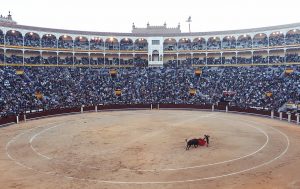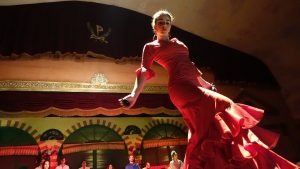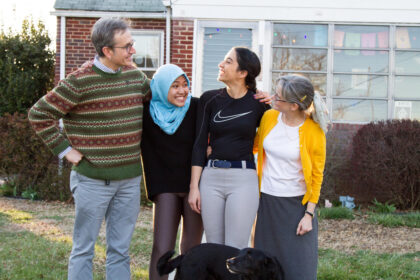One of the aspects by which Spain is characterized is its great catalog of cultural expressions that are torn between the sacred and the pagan. In fact, the word “Spain” usually produces a mixture of mental images in which there are bullfights, processions to the virgin, carnival costumes and flamenco dancers, all these elements having something in common: Spaniards’ passion and grace. In this article, we will talk about Spanish festivals and traditions.
Bullfights

Spain is the home of the brave bull, the only descendant of the urus, a primitive species of the aforementioned animal that was found all over the world and of which there are no traces. It is debated whether it was the Egyptians, Celts or Romans who gave rise to this tradition, which has so many followers and continues to be held despite the protests that are annually held against it. All Spanish locations have their version of this show, but the most famous bullfights in the world are those held during the Sanfermines in Pamplona.
Flamenco

This musical genre from Andalusia is a fusion of the Jewish, Christian, Arab and Gypsy culture. Flamenco is sung and danced to the rhythm of a guitar, and its known for its great emotional intensity manifested through laments, constant stomping and aesthetic arms movements. Among the most important flamenco festivals in Spain, we can mention the Flamenco Night of Zambra and the Festival of Cante Grande ‘Fosforito’ in Puente Genil.
The April Fair
The Feria de Abril is a festival that takes place in the month to which it owes its name, throughout a week full of songs, dancing and the well-known wine of Jerez, among other dishes and drinks of the area, which are accompanied of old cheese and ham, among other delicacies.
Holy Week
Every year every town in Spain celebrates with devotion and beauty the Holy Week, making its processions during Holy Thursday and Good Friday. On the other hand, the cities celebrate this festivity throughout the week. Regardless of the religion you have, Holy Week is a Spanish holiday that must be witnessed at least once in a lifetime. It should be noted, however, that it is not easy to get accommodation in Spain at this time due to a large number of tourists visiting the country at this time.
The Fallas
Continuing with other Spanish festivals. “Las Fallas” are parties that are celebrated in Valencia, San José and other locations between March 15 and 19. In them, carpenters burn old woods and pieces that no longer serve them. In Valencia, more than a million people attend the “Crema de los ninots” every year, which consists of the incineration of giant sculptures made with papier mache,.
Tomatinas of Buños
Also in Valencia, which a tradition that is more than 60 years old. It has been imitated in other countries and is celebrated on the last Wednesday of August when thousands of people throw themselves more than 100 tons of tomatoes in a kind of “battle” where the fun is felt everywhere, and so are tomatoes.
Moors and Christians

This Spanish festival is held in several provinces of the country but the most renowned ones are those of Alicante and especially those of Alcoy. It takes place between April 21 and 24 and divides its participants into two large groups that parade, representing Moors and Christians dressed in clothing that recall the time of the Spanish Reconquest.
San Miguel festivities
It is one of the most important agricultural festivities in Spain. It is held annually in the Parque de Los Campos Eliseos, on the same date as the Fiesta Mayor de Otoño. The castellers are among the main attractions of this event. These are people who build human castles that are several meters high. Undoubtedly, it is one of the most visually striking Spanish festivals.
The Carnivals in Santa Cruz de Tenerife
We can’t forget to comment on the Carnival in Santa Cruz de Tenerife. These carnivals and those held in Cádiz are Spain’s most famous. As in the Carnivals of Rio de Janeiro, during these days joy overflows in Tenerife, the only rule being enjoyment.
These are just some of the Spanish traditions and festivals, but do not let them tell you: go to Spain on an exchange program. By doing so, not only will you have the chance to learn or practice your Spanish skills but you’ll also be able to enjoy all these celebrations. If you want more information about exchange programs in Spain, please contact us.



